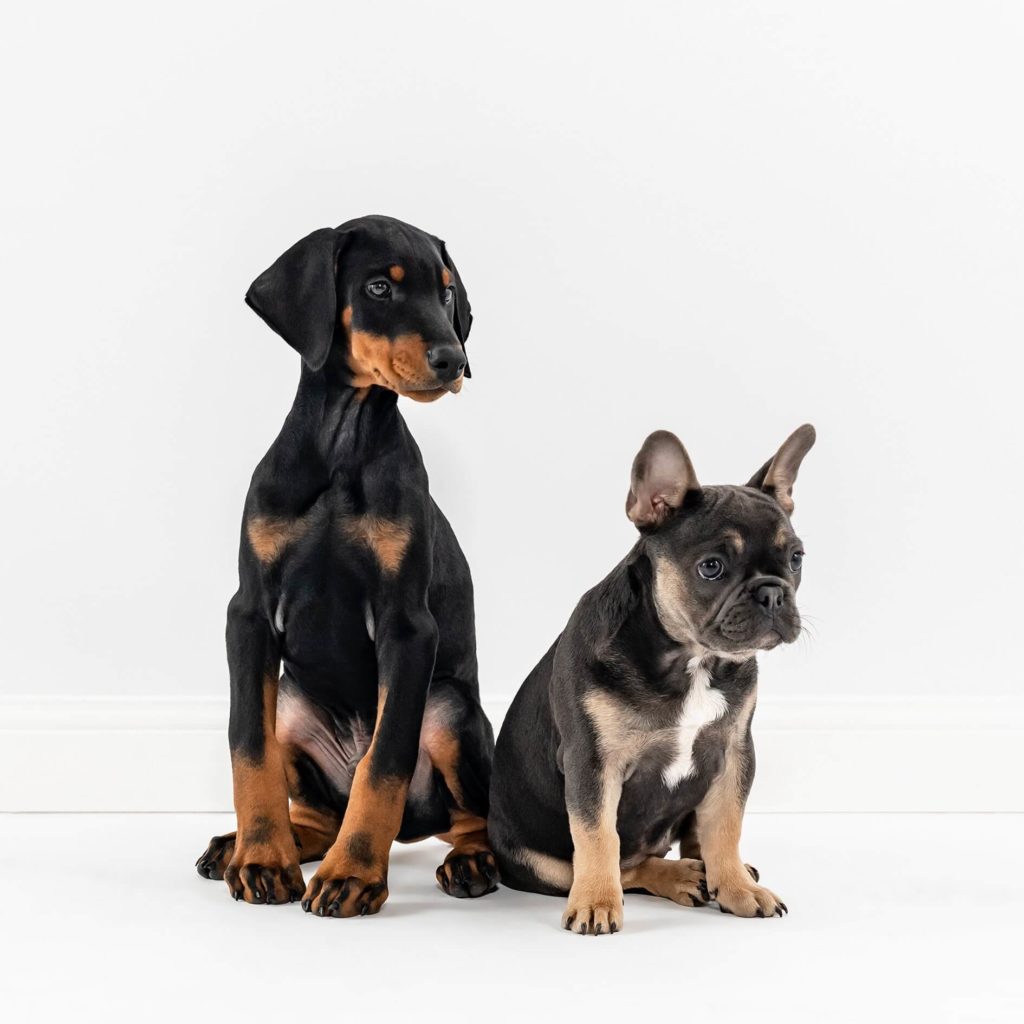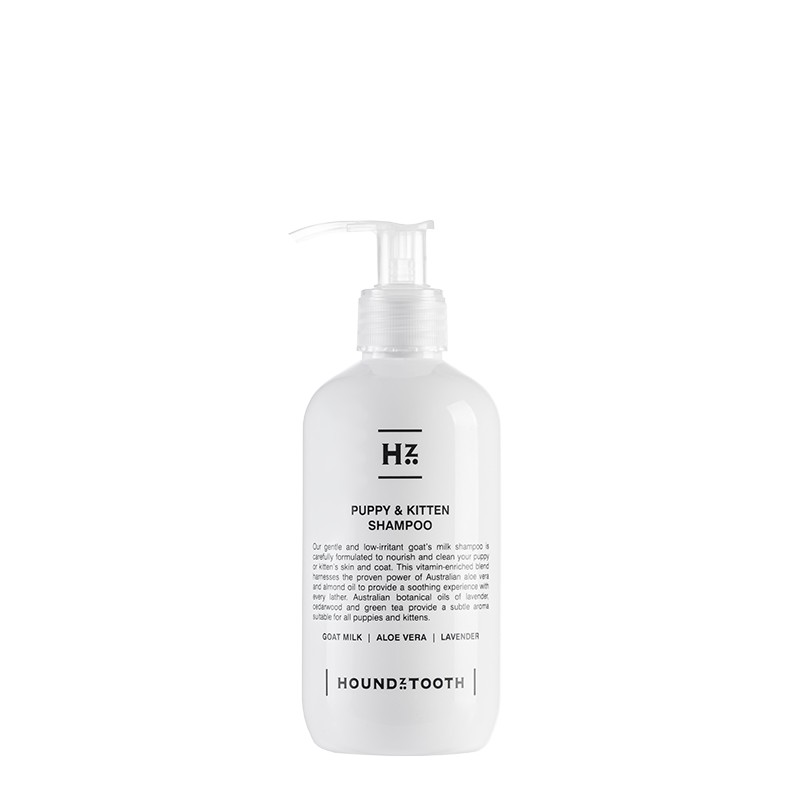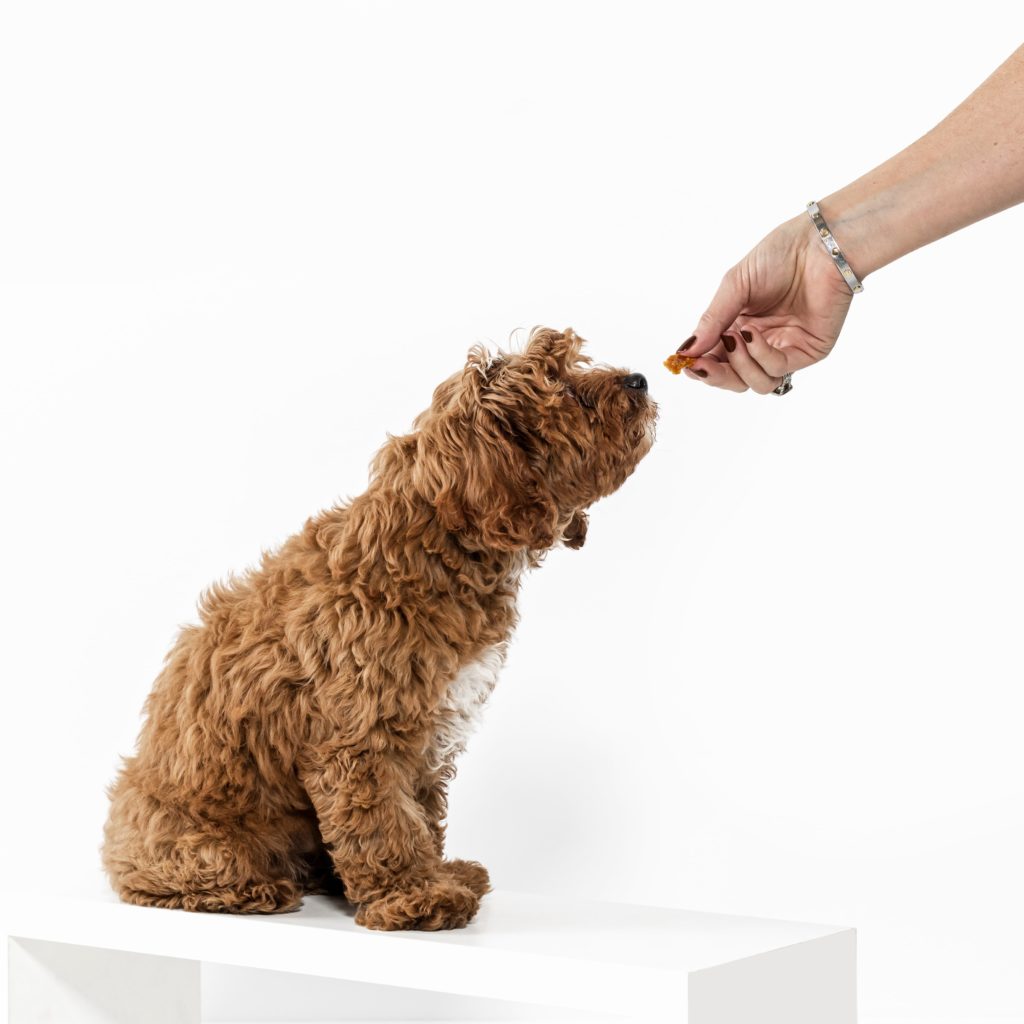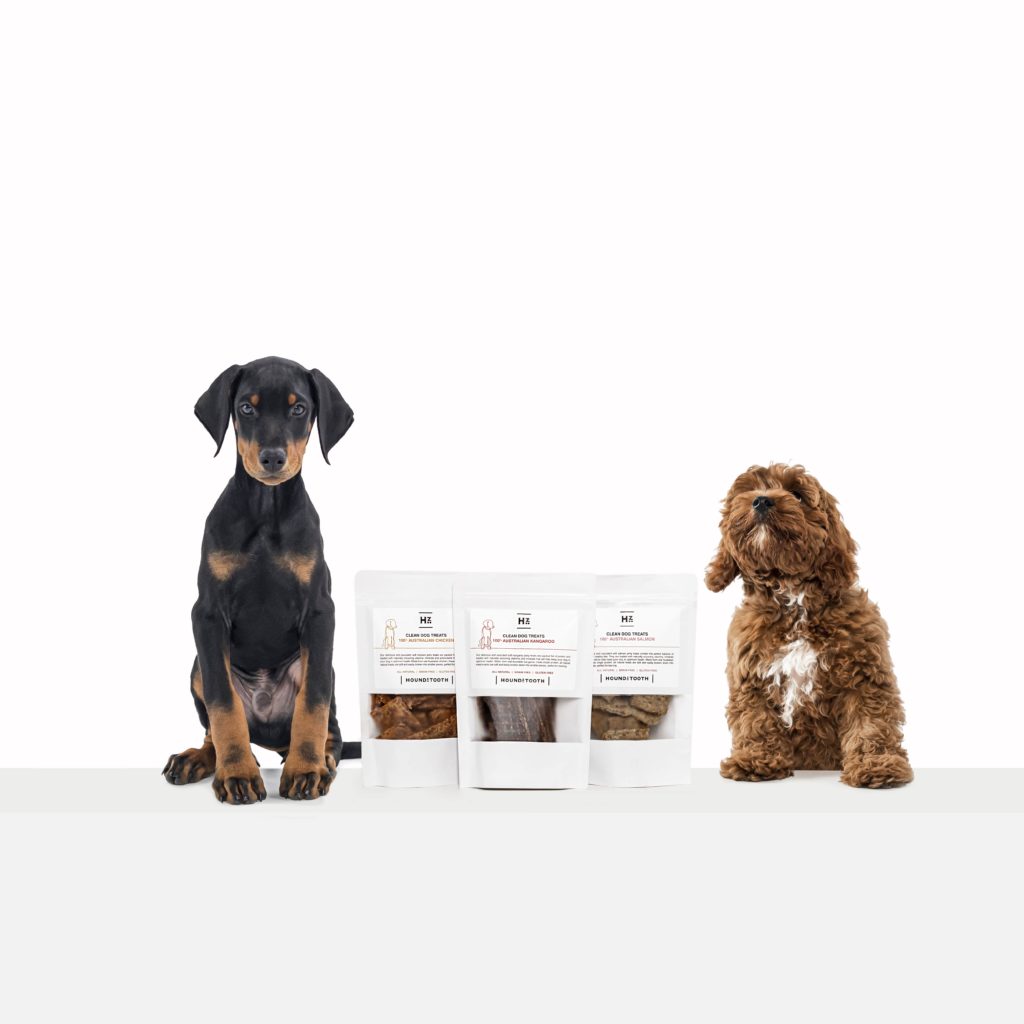Dr. Katrina’s 3 Important Things to Teach Your Puppy

Welcoming a puppy into your life is a very exciting time, and this little energetic bundle fluff is sure to steal your heart in no time!
Puppies also come with a lot of responsibility and how you raise and train your puppy in the first few months will have a big impact on their behaviour as an adult.
Sometimes new owners overlook some simple training that can make a big difference later in life. Houndztooth’s brand ambassador, Dr. Katrina Warren shares 3 important things that puppies should be taught.
- TRAINING YOUR PUPPY TO BE HANDLED
Most puppies receive plenty of pats and cuddles but they also need to learn to comfortable being touched all over their body. It is a good idea early on to get them accustomed to and familiar with touch on their paw, tail and gentle touch around their mouth and eyes.
This will help you with future vet visits, being groomed and when you need to perform body checks on them during tick season for example.
It’s much easier to teach a puppy to enjoy this than to try and train an adult dog who doesn’t enjoy it!
What can really help incentivise your dog and make them feel comfortable with this type of training is to use natural, tasty and healthy treats. Make sure for training you use something this isn’t part of their everyday diet.
Houndztooth 100% Clean Natural Dog Treats (available here in chicken, salmon and kangaroo varieties) are single protein and do not contain any additives or preservatives. They are soft and can be broken into smaller pieces which makes them ideal to use as incentives while training your puppy.
With these treats you can teach your pup that every time you touch a different area of their body they will be rewarded.
For example, touch the top of their foot, give them a Houndztooth treat, and then touch the back of their foot and give them another treat. The puppy needs to enjoy this interaction into their personal space so this should be done slowly. Some puppies have ticklish feet, so work on this over a couple of weeks until your puppy is comfortable with you touching their feet all over and nails.
Here’s a helpful checklist:
Pick 2 or 3 from the list below each day and dedicate approximately 5 minutes to work on this whilst rewarding your puppy.
- Touch the tail
- Lift your puppy’s tail up
- Touch the ears
- Touch the top the feet
- Pick up the feet
- Touch the nails
- Touch around the lips
- Gently touch around muzzle
- Touch the collar
- Lift the lips up to look at their teeth
- Pick your puppy up
- Cuddle your puppy
- Run a brush over their back
- Get your puppy to lay on their side
- While your puppy is on his side run a brush over his belly
Regular bathing will be inevitable throughout your dog’s life, no matter what their breed or coat type. However, new puppy owners often overlook the importance of teaching their new pet to enjoy bath time from an early age. You can combine touch with training your puppy to enjoy bath time too. Remember to take it slow to ensure the puppy feels comfortable.
The Houndztooth Puppy & Kitten Shampoo is suitable for all puppies and fur types. It is Australian made with naturally-derived ingredients, including calming, moisturising goat milk, aloe vera and almond oil, with a subtle botanical aroma. You can find the shampoo here. To find out more of Dr. Katrina’s tips on training your puppy to enjoy bath time. https://houndztooth.com.au/blog/training-your-puppy-to-enjoy-bath-time/

Puppy & Kitten Shampoo
- TEACHING YOUR PUPPY TO GIVE YOU THINGS FROM THEIR MOUTH
Puppies really love picking up toys, clothing and other household items in their mouth.
Often, they will hurry away from you thinking it is a game or that you will take it from them, so teach them from an early age they will get rewarded for giving the item to you.
This helps make it fun for them to respond to your request to ‘drop it’ and here’s the best way to tackle this:
- Don’t pull toys or objects or pry open their jaw as this can feel more like a punishment or a game.
- Begin with a stuffed dog toy. Encourage your puppy to play with the toy you’ve chosen. Once it’s in their mouth, hold a treat close to their nose and ask them to “give”.
- Once your puppy drops the toy, reward it with a treat and then enthusiastically give the toy back for a game.

- A great smelling treat will work the best and the Houndztooth 100% Clean Natural Dog Treats are available in 3 puppies approved single protein flavours, including Australian salmon, chicken or kangaroo. In addition to being all-natural, they are also grain and gluten-free and rich in protein, vitamins and minerals. Ensure you break into small puppy pieces to suit your puppy’s size.
Practice this pattern many times, always rewarding them with a treat as soon as they drop the toy to reinforce this good behaviour!
If for some reason it’s something your puppy can’t have back (like your shoes), still offer a delicious treat and replace the shoe with one of their toys and a game instead!
- HELP PUPPY ENJOY TIME ON THEIR OWN
Puppies are adorable and it’s understandable that you want to spend as much time with them as possible.
Some puppies can become anxious when left on their own. After all, they are social animals and love to spend time with you!
With more people now working from home, it’s not uncommon for a puppy to have human contact around the clock, and we know how tempting it can be to have them always with you sleeping on your lap while you are working.
This can lead to separation issues when you have to leave them. To help them cope with spending time on their own it helps to have this concept introduced from a young age.
Some tips to help puppy enjoy time on their own:
- Avoid carrying your puppy around the house or allowing them to follow you from room to room.
- Pop them in a play pen with a safe chew toy if you need to move around the house.
- Dedicate some ‘alone time’ for your puppy each day, ideally after they’ve had a toilet break and play time so they are tired and ready for a sleep.
- Crate training can be very helpful, as puppies learn quickly to view their crate as a safe, comfortable place to go when they are on their own.

- Offer them a clean, safe and soft puppy size treat (such as the Houndztooth 100% Clean Natural Dog treats here) so they associate alone time as something positive.
